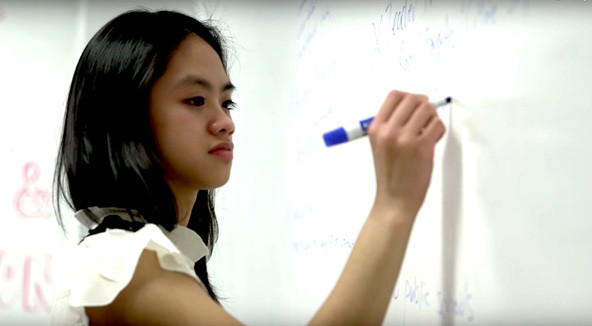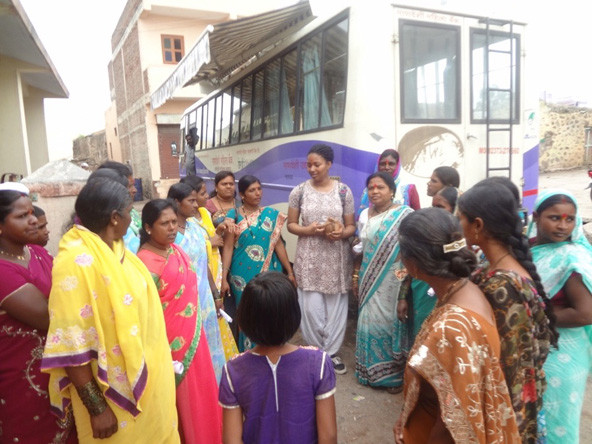Students seeking social impact careers often regard business schools as the go-to source for learning opportunities. But while business schools can help these students develop many important skills and ultimately work toward the triple bottom-line of profits, people, and the planet, it’s important that universities extend social impact education into other disciplines. The world needs a variety of leaders, with a range of expertise, committed to the public good in every sector—and universities, as multidisciplinary environments, are uniquely positioned to produce such talent.
Universities have been teaching people how to solve social problems for a long time. Before the popularity of business incubators and social entrepreneurship programs, universities were training leaders for social impact through schools of public policy, social work, health, and other fields. Universities have traditionally contributed to the public good by producing knowledge, supporting research, and promoting the open exchange of ideas. However, today’s challenges—including inequality, climate change, and global health—demand a pedagogical approach that is more adaptive, integrated, and human-centered.
 A student applies design thinking to a social problem at the Beeck Center for Social Impact and Innovation at Georgetown University.
A student applies design thinking to a social problem at the Beeck Center for Social Impact and Innovation at Georgetown University.

This means universities need to take a broader approach to social impact education, while also making it accessible and inclusive. Here is a look at a few emerging models that aim to take this approach, including our work at the Beeck Center for Social Impact and Innovation at Georgetown University.
Building Innovators for Social Impact
Since 1789, Georgetown, a Jesuit university, has provided a humanistic educational experience, with the goal of instilling in future leaders the knowledge they require to better the world. Today, we seek more agile and dynamic ways to do a very old thing: marshal university resources to create leaders committed and prepared to tackle society’s greatest problems. Through research, thought leadership, experiential learning, and action-oriented convenings, the Beeck Center, established in 2014, invites people to share ideas and strategies for addressing complex social problems in new ways. We target this work to a broad community of learners seeking to make a social impact—from undergraduate and graduate students to leaders, practitioners, and experts working across various sectors in society.
We advance research and practice that draw on flexible, interdisciplinary and cross-sector approaches to producing better outcomes for society. We facilitate conversations, and engage emerging and established leaders in problem solving that links theory to action and generates a synthesis of research. We emphasize the need for social impact leaders to incorporate multiple perspectives (for example, global and systemic), collaborate in diverse teams, and use data for decision-making. We also make a point of encouraging all students to address problems with empathy and creativity.
With this approach in mind, we offer cross-disciplinary, modular courses—such as pop-up classes for students, alumni, and practitioners—led by social innovators. We also design instructional and immersive experiences to engage communities of learners at the intersection of theory and practice. Hands-on learning opportunities provide a grounded understanding of today’s realities, while challenging students, leaders, and practitioners to solve for tomorrow’s problems. Here are two examples:
- Our full-credit, semester-long course “Social Impact @ Scale” invites students to solve a real-world problem of scale for an organization. Students work in interdisciplinary teams to develop ideas that can be tested in practice. In 2016, students worked with Mann Deshi Foundation in Mhaswhad, India, to provide recommendations on how to expand a financial training program from 200,000 to 1 million women.
- Our fellowship program GU Impacts places Georgetown undergraduates with innovative public, for-profit, or nonprofit institutions in the United States and around the world. During a 10-week residency, students work with these partners to implement innovations such as educational technology solutions for children in Nicaragua or micro-entrepreneurship development in Peru. When they return, we help them reflect on their experiences and draw lessons to inform their academic and career plans.
 A Georgetown University Impacts fellow working with Mann Deshi Foundation in Mhaswhad, India, meets with women entrepreneurs.
A Georgetown University Impacts fellow working with Mann Deshi Foundation in Mhaswhad, India, meets with women entrepreneurs.
Other universities are offering innovative models for learning and engagement beyond the business school, too. For example:
- The University of Michigan’s Center for Social Impact trains students to take a cross-sector approach to solving complex problems. Its Social Impact Challenge is an all-campus initiative where multidisciplinary student teams collaborate with a social impact organization, and engage with faculty and community leaders to address local issues such as economic revitalization or transportation, in cities like Detroit and Flint, Michigan.
- Students at Emerson College’s Engagement Lab take on the challenge of reimagining civic engagement in the digital age. Using an applied research approach, the lab provides a foundation in civic media, and links students and faculty to government, nonprofits, and communities to co-design solutions for local and global challenges. Students gain transferable skills and experience that they can apply to future careers across sectors.
- At Santa Clara University, the Markkula Center for Applied Ethics contributes to the Jesuit university’s mission to educate the whole person and prepare leaders to serve humanity. Students, faculty, practitioners, and leaders across sectors learn to apply an ethics framework to decision-making, and participate in dialogue around the ethical considerations and implications of emerging technologies and other transformational shifts in society.
Together, centers like these—and their counterparts outside of the United States—are driving a “culture of innovation” from within. There is not one particular model for these efforts. Within our diversity, we are united by a common commitment to shaping leaders who can build a better future.
Universities as Platforms for the Future
Universities remain important to shaping the future and building a more just world. But they must adapt to provide social impact education, and seek to apply new modalities of teaching and learning to engage diverse learners across disciplines and experiences. In a time of increasing democratization of knowledge, universities are no longer the only source for learning—but they are critically important ones. They provide a place for scholarship, research, and innovation. They provide a place where students learn and develop human values. They provide a place where members of society—students, faculty, organizations, and communities—come together to engage in dialogue, generate and cross-pollinate ideas, and solve problems. The university must continue to provide a space where the next generation of leaders can learn to think openly and make meaning of an uncertain future, and to marry scholarship and concern for others to the practical goal of achieving social impact.
Support SSIR’s coverage of cross-sector solutions to global challenges.
Help us further the reach of innovative ideas. Donate today.
Read more stories by Marta Urquilla.

